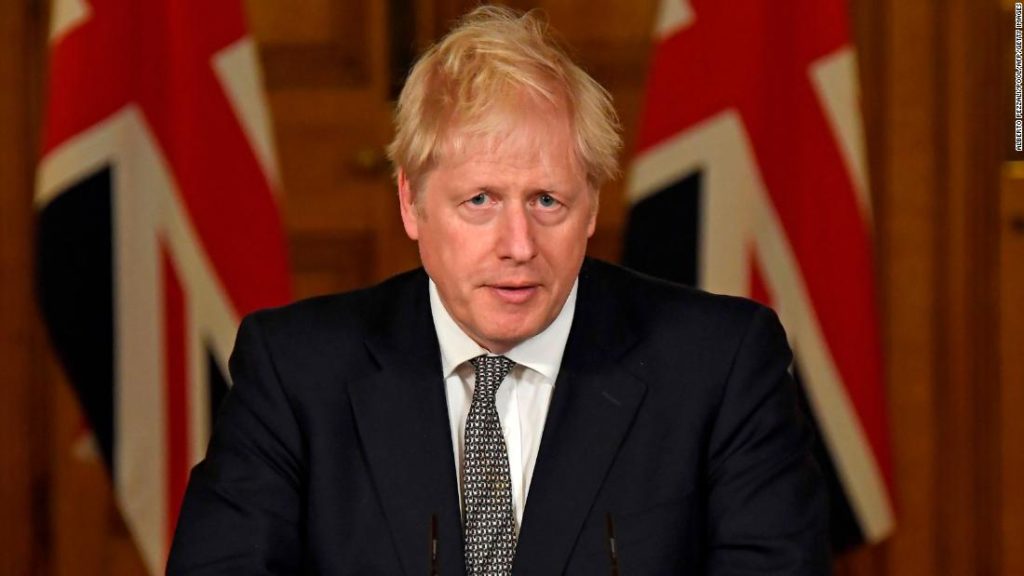UK companies, already reeling from the pandemic, would lose tariff-free, quota-free access to a market of 450 million consumers that buys nearly half of Britain’s exports and provides a similar share of its imports.
For the European Union, the United Kingdom is much less important, accounting for just 4% of the bloc’s exports in 2019 and 6% of imports, according to the Ifo Institute, a German research group.
“Brexit means both sides lose, but the United Kingdom loses considerably more,” Lisandra Flach, director of the Ifo Center for International Economics, said in a statement on Tuesday.
The big hit
The 2016 Brexit vote led to huge uncertainty over the terms of future trade with the European Union, reducing investment into the UK economy and damaging growth for years to come.
The UK Office for Budget Responsibility (OBR), which produces economic forecasts for the government, said in November that even if London and Brussels are able to reach a deal, their new trading relationship is expected to lead to a long-run loss of output of around 4% compared to Britain remaining in the European Union.
“The long-term effects [of a no-deal Brexit] would be larger than the long-term effect of Covid,” Bank of England Governor Andrew Bailey told parliament last month. “It takes a much longer period of time for what I call the real side of the economy to adjust to the change in openness and to the change in profile in trade,” he said.
Automakers and farmers
For businesses, the end of the transition period in a few short weeks could spell huge disruption to their operations and supply chains. The British Retail Consortium said last month that delays in the movement of food shipments at the main border crossing are “inevitable.”
Even with a deal, trade will be subject to burdensome customs checks, costing UK businesses £7.5 billion ($10.5 billion) annually in import and export declarations, according to the UK revenue authority.
Failing to secure a trade deal could make a bad situation worse.
UK food products will face an average tariff of 22%, with lamb producers facing a hefty 40% tax on exports.
Financial markets brace
The pound is expected to take a drubbing too, making imports even more expensive. Investors have been pricing in a deal, pushing the pound as high as $1.35 last week. But anxiety is creeping in, sending the currency around 1% lower against the dollar Monday.
“Sterling will likely test its all-time low in real effective terms if there is no deal,” Societe General strategist Kit Juckes said in a note to clients on Monday.
Border chaos
The logistics companies that make the economy run are bracing for trouble.
Trucking and transportation companies are still in the dark about the new systems that will be in place at the border on January 1, which could mean that goods destined for the United Kingdom simply don’t leave depots in Europe, according to the Road Haulage Association.
“Things might not arrive in factory supply chains in the way they have done in the past, which could mean factories aren’t able to work,” Rod McKenzie head of policy and public affairs at the trade group told CNN Business on Monday. There could also be “gaps on supermarket shelves,” McKenzie added.
“What we’re looking at here is a situation that could range from shambolic at best to catastrophic at worst,” he said.
On Monday, the British Chambers of Commerce said that information is lacking for 24 of the 35 questions most frequently raised by businesses. These range from tariff codes and rules of origin through to the movement of goods.
“With just weeks to go, businesses need answers, and they need them now,” the Chamber’s director general Adam Marshall said in a statement. “Posters and television adverts are no substitute for the clear, detailed and actionable information businesses require to prepare for the end of transition.”
— Charles Riley and Julia Horowitz contributed reporting.
You may also like
-
UK coronavirus variant has been reported in 86 countries, WHO says
-
NASA technology can help save whale sharks says Australian marine biologist and ECOCEAN founder, Brad Norman
-
California Twentynine Palms: Explosives are missing from the nation’s largest Marine Corps base and an investigation is underway
-
Trump unhappy with his impeachment attorney’s performance, sources say
-
Lunar New Year 2021: Ushering in the Year of the Ox

